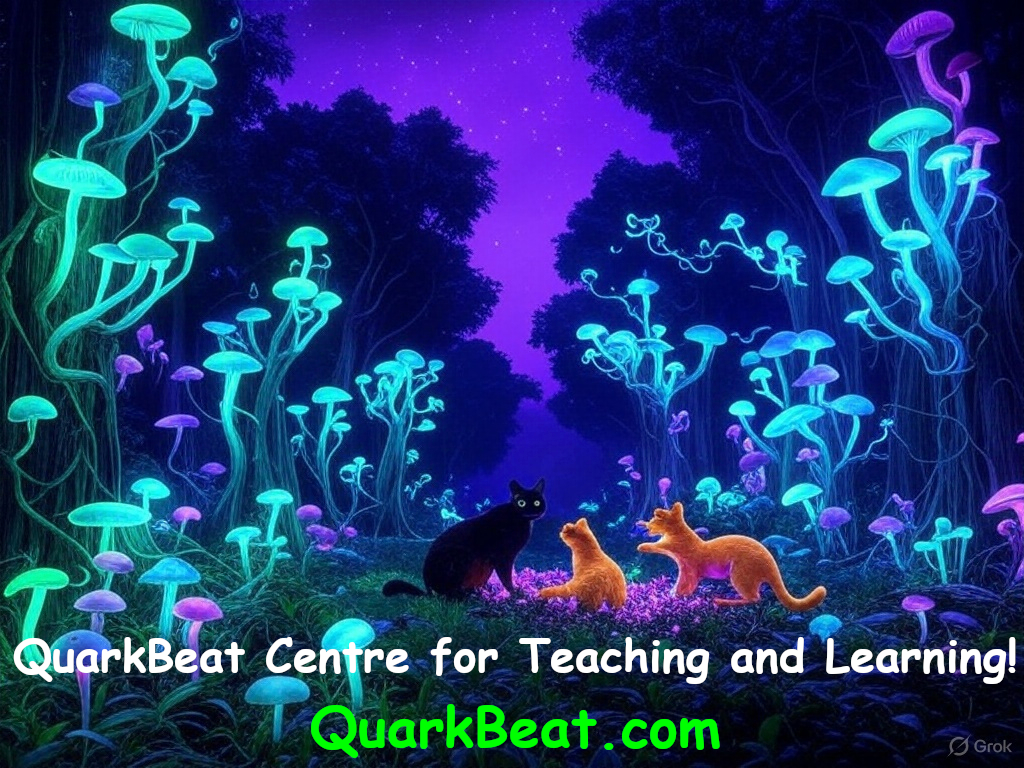Five Key Pedagogical Approaches to Ignite Learning
Watch this How to Vote Guide for Western Australian State Elections!
QuarkBeat Centre for Teaching and Learning
The QuarkBeat Centre for Teaching and Learning cultivates a space where ideas flourish, fostering not only personal growth but also collective understanding. Join us in this intellectual journey to spark minds and build a more informed, conscious world.
Zzzap, QuarkBeaters! Education isn’t just about cramming facts—it’s about sparking curiosity and building skills for life. At QuarkBeat, we’re diving into five key pedagogical approaches that transform teaching from rote memorisation to meaningful learning. Whether you’re an educator, parent, or lifelong learner, these methods—constructivist, collaborative, inquiry-based, integrative, and reflective—offer practical ways to engage students and foster critical thinking. Let’s explore how these approaches can light up classrooms and empower minds.
First up, the constructivist approach flips the script on traditional teaching. It’s all about active learning, where students construct knowledge through engagement, not passive absorption (SimplyPsychology, 2025). Think of it as building a mental LEGO tower—learners stack new experiences onto prior knowledge, creating meaning through critical thinking. It’s student-centred, encouraging exploration over lectures, but it’s not without challenges; teachers often balance it with direct instruction to meet standards.
Next, the collaborative approach harnesses the power of teamwork. Students work in groups, sharing knowledge and skills while solving problems together (Cornell, 2025). It’s like a brainstorming jam session—everyone brings their own riff, creating a richer melody through peer feedback and diverse perspectives. Knowledge is co-created, boosting communication and leadership skills, though it requires careful planning to ensure productive dynamics.
The inquiry-based approach starts with a spark—a question, problem, or scenario that students explore through research and analysis (SpringerOpen, 2020). Whether working solo or in groups, learners dig into solutions, honing critical thinking and problem-solving skills. It’s a detective game: students investigate, evaluate evidence, and draw conclusions, making learning active and engaging, especially for complex subjects like academic writing.
Then there’s the integrative approach, which connects the dots across disciplines for a deeper understanding (Unimelb, 2024). Imagine blending science with literacy to explore climate change—students write essays while analysing data, making learning more engaging and comprehensive. This interdisciplinary method tackles real-world “wicked” problems, encouraging creativity and holistic thinking, though it demands teachers plan thoughtfully to align subjects.
Finally, the reflective approach turns the lens on the teacher. Educators evaluate their methods, refining strategies based on student outcomes (Unimelb, 2024). It’s a self-check: what worked, what didn’t, and how can I improve? By focusing on skill enhancement and addressing learning challenges, teachers grow alongside their students, ensuring instruction evolves to meet diverse needs.
Conclusion These five key pedagogical approaches—constructivist, collaborative, inquiry-based, integrative, and reflective—offer a roadmap for meaningful education. At QuarkBeat, we believe learning should ignite curiosity, not fear, empowering students and teachers to connect, explore, and grow. Let’s champion methods that honour critical thinking and real-world problem-solving over outdated rote learning.
Neon Takeaway
QuarkBeat’s guide to five key pedagogical approaches: spark active learning with constructivism, teamwork, inquiry, integration, and reflection—empower minds at QuarkBeat.com! 🚀
References
- SimplyPsychology (2025). Constructivism Learning Theory & Philosophy of Education. Visit SimplyPsychology
- Cornell (2025). Collaborative Learning | Center for Teaching Innovation. Visit Cornell
- SpringerOpen (2020). Effects of using inquiry-based learning on EFL students’ critical thinking skills. Visit SpringerOpen
- Unimelb (2024). Interdisciplinary Teaching and Integrative Learning Strategies. Visit Unimelb




